| But this incredible career was almost over before it began after the fall-out from her second film Confidential Agent (Shumlin, 1945). The film was a war-time espionage thriller, which miscast Bacall as a daughter to a British Lord. In her words; “At twenty, I was far removed from either character, but the wry, earthy girl of To Have and Have Not had humor, which was always a part of me-whereas the British broad was totally straight and dreary” (Bacall 158). The film flopped but Bacall explained how she got through this rough period; “Lucky for me I threw myself so violently, so single-mindedly, into the big things in life. “If I hadn’t been so consumed by Bogie, the thrusting of me onto the national scene with such a vengeance would had been uncopable with” (Bacall 162). I think Bacall’s ability to keep this event in perspective, shows a lot about her inner strength and resiliency as a person. This mindset would allow Bacall to continue her career into the fifties, where she split her time between raising her family, and her career. With films such as How to Marry a Millionaire (Negulesco, 1953) Written on The Wind (Sirk, 1956), and Designing Women (Minnelli, 1957), Bacall proved she belonged alongside the top leading men of the day including William Powell, Rock Hudson, and Gregory Peck. It was also during this time, Bacall became extremely involved in speaking out against HUAC, known as the House of Un-American Activities Committee, in their Anti-Communist attack on Hollywood. An outspoken woman for political causes throughout her life, Bacall, Bogart and other liberal minded members of the Hollywood Colony such as John Garfield, Gene Kelly, and Paul Henreid, would form the Committee for the First Amendment (Bacall 173, 175). This is what makes her pairing with John Wayne who had opposing political beliefs, all the more interesting. Bacall starred with Wayne in Blood Alley (Wellman and Wayne, 1955) and his final film The Shootist (Siegel, 1976) and suprisingly the two would actually became great friends. In Bacall’s words; “Duke Wayne and I got along really well, considering that we didn’t agree about anything! (laughs) It was quite amazing. He was great to work with. He really liked me, and I really liked him. We had great chemistry together” (Simon "Lauren Bacall Walks the Walk"). She also proved she could emulate her idol Bette Davis, winning a Tony Award for the Broadway musical adaptation of All About Eve (Mankiewicz, 1950), titled Applause starring in her well known portrayal of Margo Channing. She would also win a second Tony Award in the 1981 Broadway adaption of Woman of the Year which was originally a film starring her friends Katherine Hepburn, and Spencer Tracy (Susman "Lauren Bacall Has Died at Age 89"). |
Works Cited:
Bacall, Lauren. Lauren Bacall by Myself.: Lauren Bacall. New York: Knopf, 1979.
Print.
"Lauren Bacall." IMDb. IMDb.com, n.d. Web. 10 Oct. 2014.
Bacall, Lauren. Now. New York: Knopf, 1994. Print.
Simon, Alex. "Lauren Bacall Walks The Walk." Interview.
Web log post. The Hollywood Interview. Blogspot, 29 Jan. 2013. Web. 10 Oct. 2014.
Susman, Gary. "Lauren Bacall Has Died at Age 89." Vanity Fair.
N.p., 13 Aug. 2014. Web. 10 Oct. 2014.

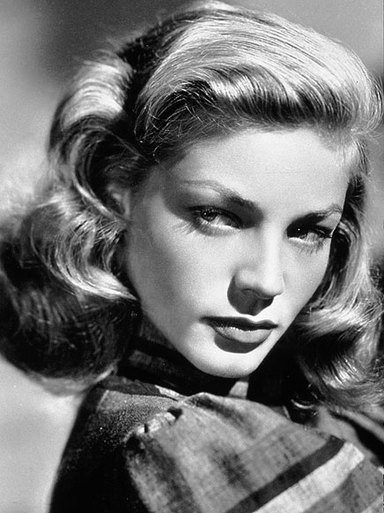
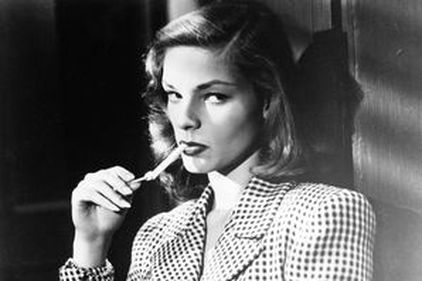
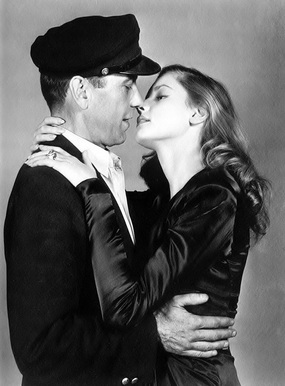
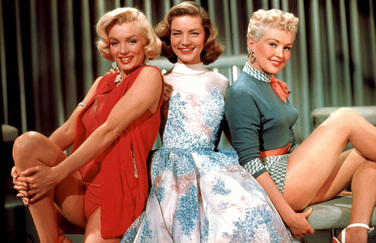
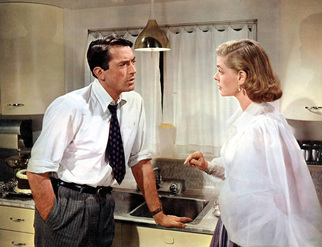
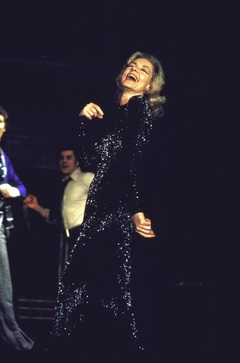
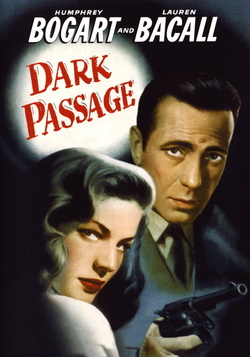
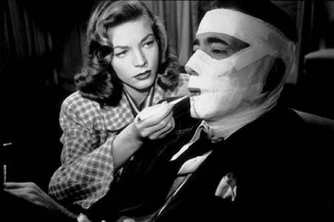
 RSS Feed
RSS Feed
